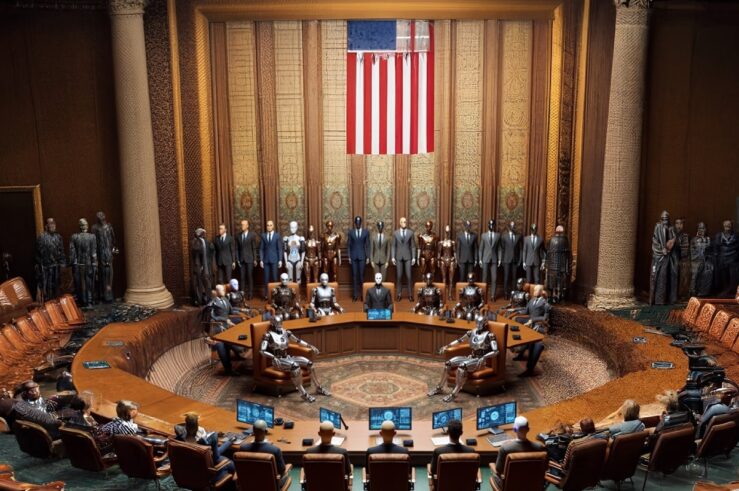On January 2, 2007, Dean Henry Manne published a column in the WSJ regarding corporate democracy. In this column, Manne takes a stab at shareholder voting and corporate democracy. Manne maintains that shareholder activists are deluding themselves with the phrase “corporate democracy” in that only the controlling s/h have and will ever have a true voice in corporate matters (such that there never will be any “corporate democracy” as a practical matter). It appears that Manne takes the position that corporate “democracy†does not and should not exist; shareholder activists misunderstand the shareholder vote from a “big picture perspective;†and there are other alternatives to a full shareholder vote.Â
Professor Steve Bainbridge’s commented on Manne’s column, noting that “[a]ll in all, it’s a brilliant spanking of the shareholder activists, which I highly commend to your attention.â€Â As a token radical shareholder primacist, I have to say that I felt more befuddled after reading Manne’s comments than “spanked.â€Â
Setting aside any discussion of cumulative voting, Manne’s column left me wondering how he accounted for investor confidence. Manne notes that, instead of holding meetings at which shareholders exercise their vote, one could (in theory) appoint a trustee to survey the controlling block to see who they want in leadership. Yet it is unclear to me how Manne accounts for investors who pack up their money and walk away when denied a vote. Adam Smith and the OPM concern: it seems to me that voting is at least a small indication to shareholders that those managing their money are recognizing an accountability to the investors. I have to believe that that impacts investor confidence, so how does Manne account for the longer term loss of investor confidence?Â
Additionally, “shareholder democracy†serves the purpose of signaling to directors whether shareholders are displeased. For example, assume at a 1995 annual meeting that 19% of the Disney shareholders withheld their vote for Eisner as director. Obviously Eisner would still be elected by a 81% vote, but my position would be that the 19% vote was useful because it conveyed to Disney management that investors had perhaps lost their confidence in Eisner’s ability to serve as a director. This would mean that Disney management would have time (hopefully) to change things to avoid the 19% of displeased shareholders pulling their money out of Disney. If investors have no voice and no sense that management takes note of their views, will there not be some sort of loss of confidence, reluctance to invest, and related market adjustments?Â
Manne might say “calling for a full vote was a big waste of time – the 19% block was always going to be stuck with the course charted by the 81%. And if the complaining 19% pulled their money out of Disney stock such that the stock price slips, professional investors would snap up the Disney stock on the fall such that it would rebound.â€Â Â
But does that reply – the market will right itself – fully account for the costs of the market righting itself? How do L&E wonks like Manne completely account for the true, long-term cost of noisy trading when it is hard to identify what the market would have done in the absence of such? Assume that noisy trading weeds out certain investors with a weak stomach, how much is the market losing in transactional costs or capital market strength (long term) with a volatile market? Even if Manne assumes that the market will right itself, what are both the direct and the indirect costs of the market righting itself via a relatively large Disney minority shareholder exodus and extra market noise? It is unclear to me how Manne accounts for those things.



